E-commerce managers have been finding ways to use Generative AI to improve their operational efficiency, increase conversion rates, and improve the customer experience.
In this guide, I’ll go over everything about Gen AI: statistics, use cases, benefits, and examples of retailers utilizing artificial intelligence to revolutionize their online stores.
TL;DR
- Generative AI has been gaining traction in retail, as it has been forecasted to reach $2.1 billion within the next 8 years.
- The best use cases for Gen AI in e-commerce are producing product descriptions at scale, setting up personalized product recommendations, and building out marketing campaigns.
- The main benefits of using conversational AI for e-commerce include scaling content production, reducing costs, and increasing conversion rates.
- Popular examples of retailers using generative AI include Walmart, where they set up a smart site search, and Amazon, where they introduced an AI-powered shopping assistant.
Top 5 Statistics You Should Know About Generative AI for Retail
#1: Generative AI in e-commerce has been forecasted to reach $2.1 billion by 2032
Generative AI has been forecasted to reach $2.1 billion within the next 8 years, according to Einnews.
The research goes further to predict an annual growth rate of 14.90%, showcasing e-commerce brands’ commitment to using AI in their stores.
#2: Chatbots reduce issue resolution time from 38 hours to 5.4 minutes in customer service
AI-powered chatbots have been used to improve the customer experience in online stores by resolving common issues and requests.
Research has found that the Gen AI software can reduce the issue resolution time to 5.4 minutes from 38 hours on average.
#3: 83% of customers would browse or buy products in messaging conversations
Research into consumers found that 83% of them would browse or buy products in messaging conversations in online stores.
This statistic shows that consumers miss the experience of talking to sales assistants that we see in brick-and-mortar stores.
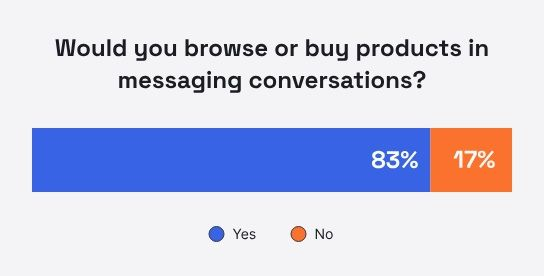
#4: Personalized product recommendations make up 31% of online stores’ revenue
300 merchants were surveyed by Barilliance and found that personalized product recommendations accounted for 31% of their revenue.
These tailored product recommendations can be received from either a chatbot (more on that later) or during browsing as a module on the product pages.
#5: 78% of e-commerce stores have already implemented AI in their stores or plan to do so
Most (78%) of online brands have already implemented artificial intelligence in their online stores or plan to do so, according to Forbes.
As generative AI technology has become more affordable with the emergence of ChatGPT and other platforms, more and more brands have adopted AI.
7 Use Cases For Generative AI in Retail
#1: Product Description Generation
One of my favourite generative AI use cases for e-commerce is the ability to scale product description generation.
Especially if you are operating in large e-commerce websites where you need to write hundreds of standardized product descriptions, you can use Gen AI to simplify that process for you with engaging and persuasive product descriptions.
Here’s an example of me using Perplexity to create a product description for a Gorilla Glue product:
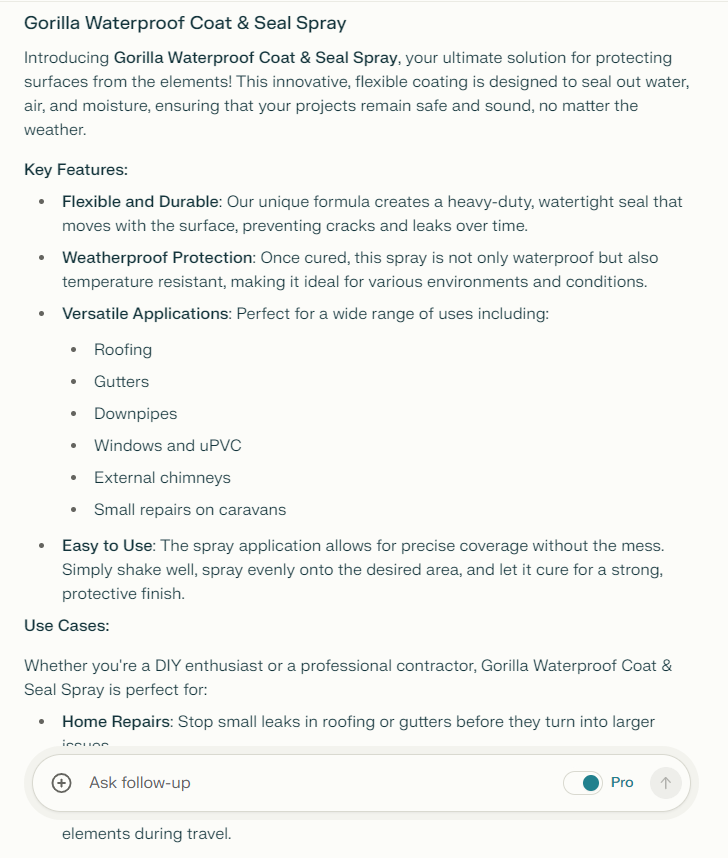
You can prompt the AI tool to:
- Write about the use cases of your product.
- Go over how to use it.
- Discuss who it is best for.
If you are looking for a more tailored solution to scale your product description generation and collaborate with your team, you can check out Team-GPT.
Our platform lets you and your time collaborate inside popular LLM tools like Perplexity, ChatGPT, and Claude together and bring a custom version of ChatGPT inside the tool.
You can build your own version of ChatGPT to Team-GPT where you can feed the language model all of your product information, brand voice, use cases, and target audience to produce quality product descriptions at scale.
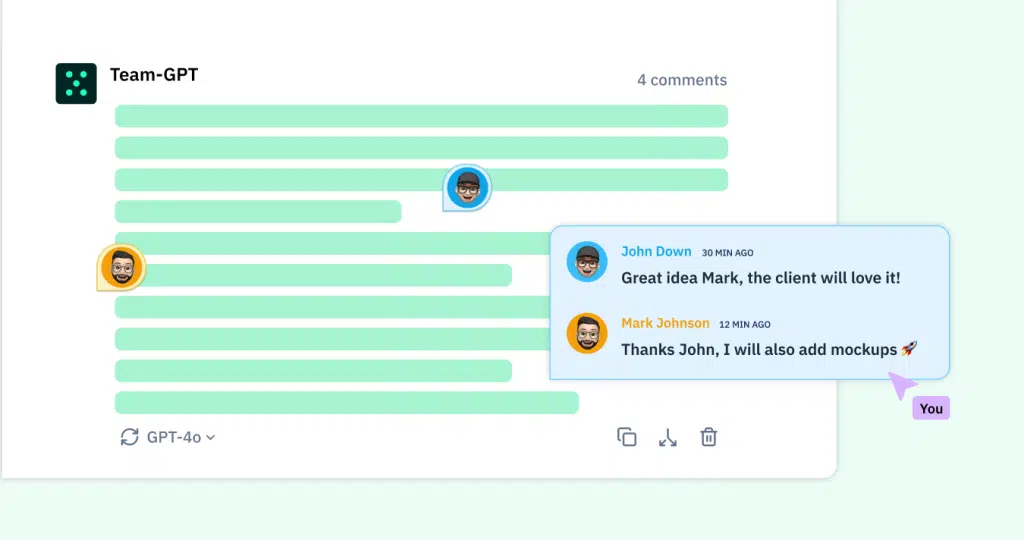
Here’s how the platform works in more detail:
#2: Product Recommendations
You can use generative AI models to suggest personalized product recommendations to your new and returning customers.
Platforms like Bloomreach use your customers’ buying history and product preferences to anticipate their future needs and products they might be interested in.
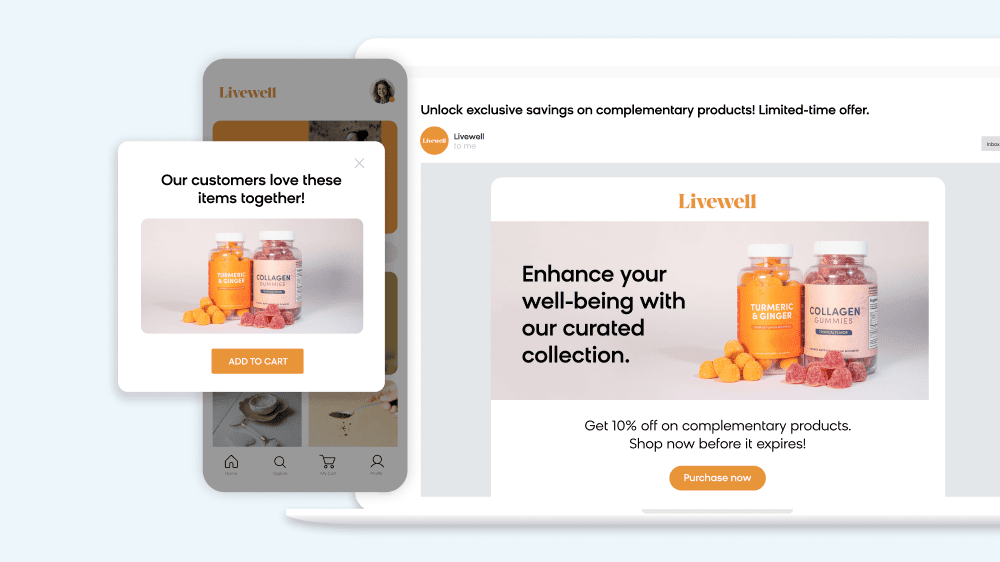
These product recommendations can appear in emails, during browsing on the website, or during a conversation with a chatbot.
One of the downsides of product recommendation software is that it requires good user data to make truly tailored suggestions, instead of generic recommendations.
This is why it has been the preferred choice by larger companies like Amazon (I’ve prepared a case study for you) who have access to that user data.
#3: Inventory Management
Another way to use generative AI is to utilize it for demand forecasting for your products.
AI is now capable of generating predictions based on historical product and sales data, consumer trends, and seasonality.
This will help you better prepare for unpredictable demand during:
- Black Friday.
- Cyber Monday.
- Christmas and New Year.
Large retailers like Walmart have incorporated inventory forecasting to reduce instances of overstock or stockouts.
Here’s how AI-powered inventory management works, presented by LeewayHertz:
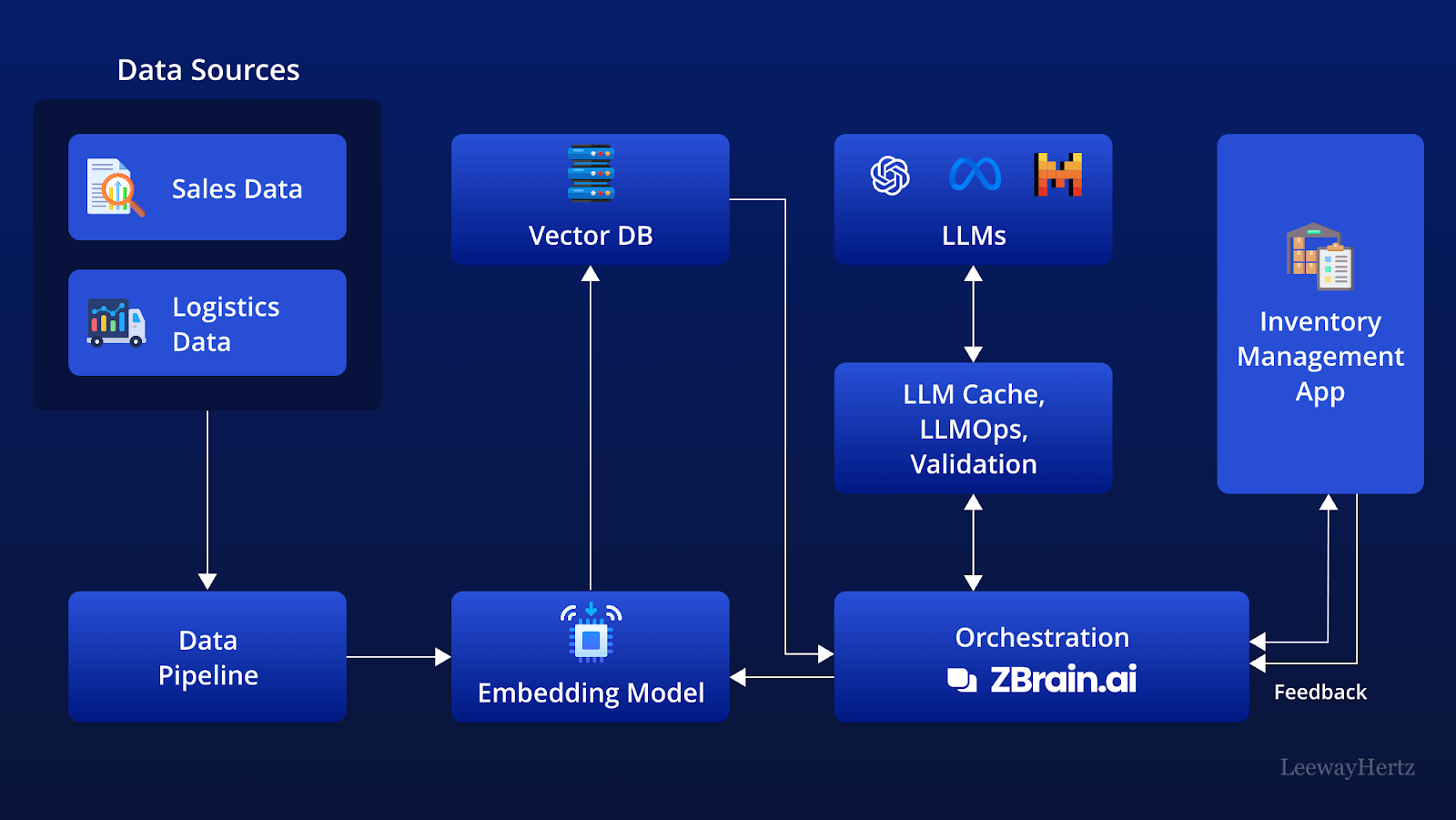
#4: Marketing Campaigns
Another use case for generative AI is to generate marketing campaigns across social media, email marketing, and advertising.
The technology can help you plan and launch high-performing marketing campaigns that take care of the brainstorming, content planning, and content creation for you.
For example, I used my own custom version of ChatGPT to generate a social media content plan with:
- The content plan.
- The best posting time.
- Type of content to post.
- Captions for each post.
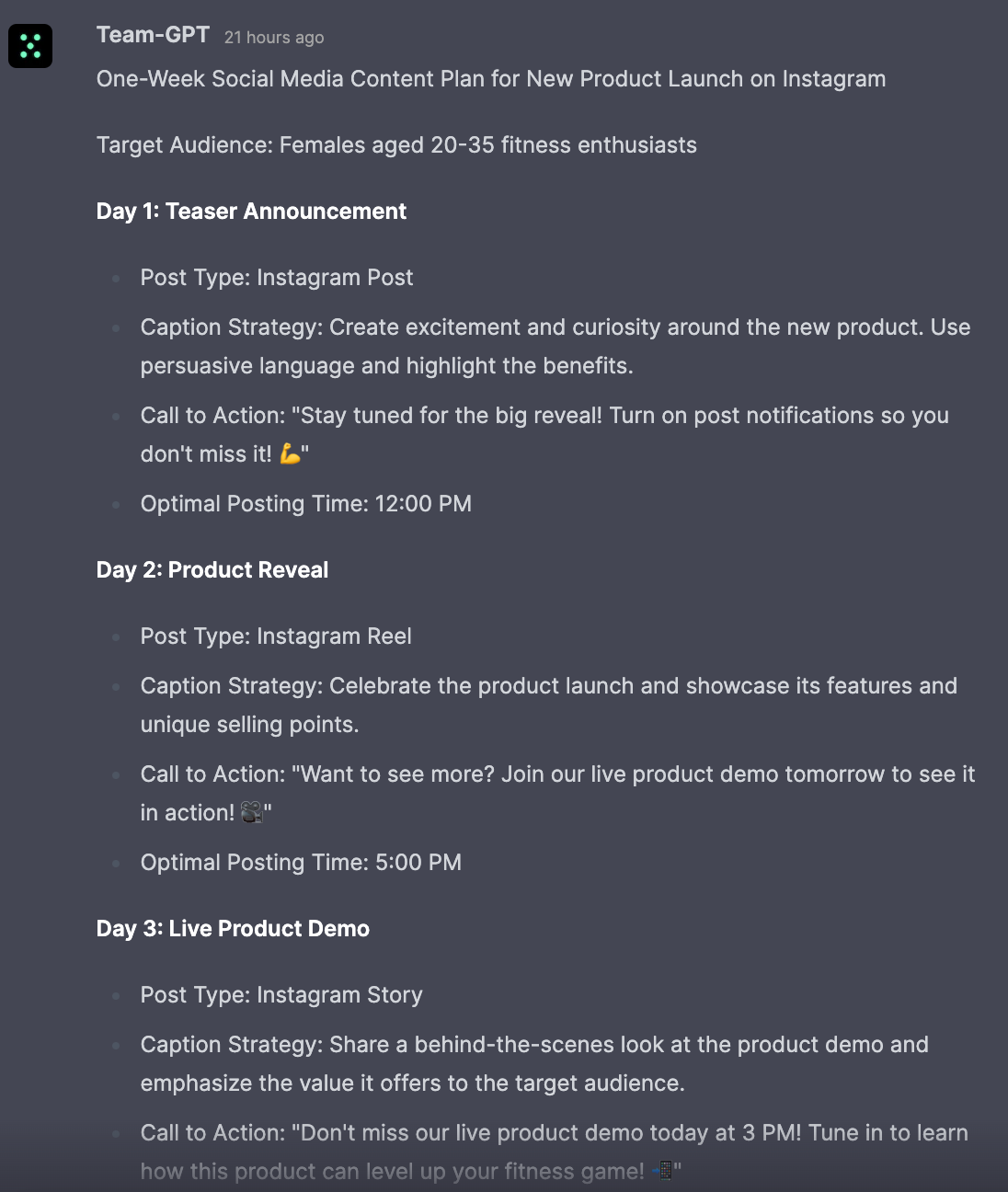
The tool planned a one-week social media content plan for a new product launch that probably saved me an hour of planning.
To make matters simpler for your marketing team, you can use Team-GPT’s collaborate AI feature to collaborate with your team and build marketing campaigns together.
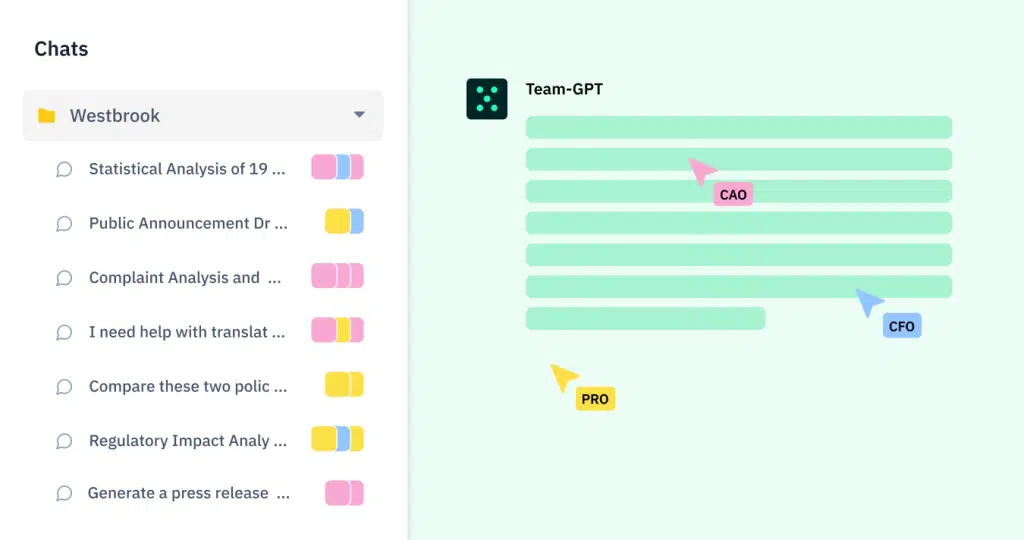
#5: Post-Purchase Customer Support
You can use generative AI to automate your customer support and to decrease the average time to problem resolution.
On one hand, you are helping your customers resolve common complaints, such as returns and exchanges of products.
On the other hand, you are reducing your customer support costs and enabling your customer support reps to focus on more complex issues.

#6: Data Analysis At Scale
An underrated use case of generative AI in retail has been using the technology to analyze large samples of data.
Your online store can make better decisions about consumer needs and evaluate trends happening on your website.
AI’s algorithms utilize machine learning to analyze large quantities of consumer data to identify patterns and translate the results back to you.
➡️ You can feed your data to a Custom GPT model that can analyze it for you and extract results on Team-GPT.
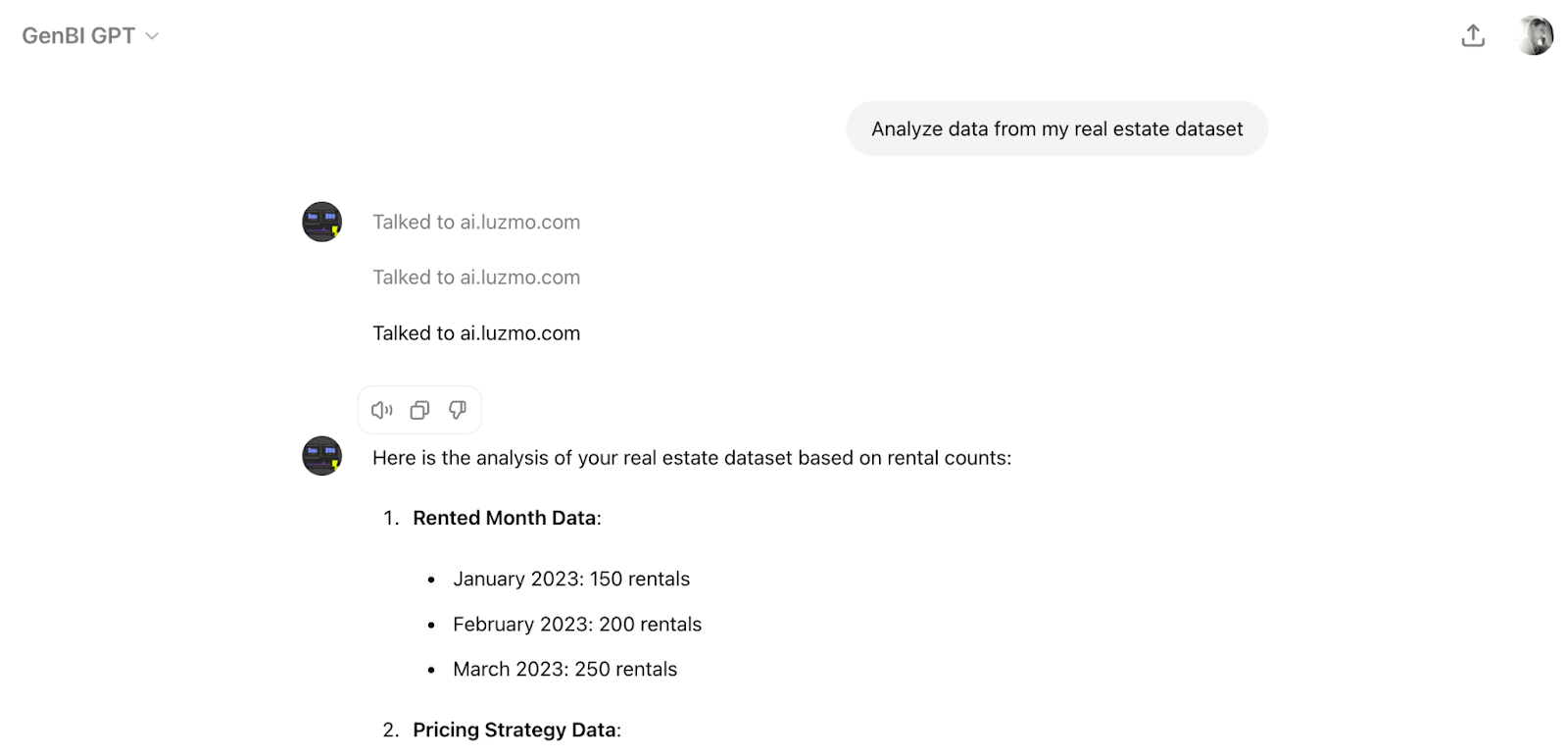
Larger online stores can utilize platforms like Google Cloud’s BigQuery ML and Microsoft Azure Machine Learning to integrate them with your tools for more advanced data analysis tasks.
#7: Generate Quality Creatives in Image and Video Format
Your online brand can also use AI technology to produce images and videos for product pages, product ideas, and marketing campaigns.
E-commerce brands have been using AI content creation tools like InVideo to create on-brand video content with text instructions.

The way it works is that you can type out a topic and supporting information on what video you need, and the software will generate a video with script, visuals, subtitles, voiceover, and music.
As for image generation, I’ve noticed brands use DALL-E to generate quality images for marketing campaigns.
The platform has been receiving an increased adoption rate by designers and marketers at online stores, as it helps them craft advertising materials and build visuals out of products.
I found this marketer who has been using DALL-E 2 for Shopify product image generation to save time and optimize their store.
What Are The Benefits of Using Gen AI in Retail?
The benefits of using Gen AI in retail are:
- Scaling your content production across product descriptions and marketing campaigns.
- Reducing your operational costs from expensive copywriters and customer service representatives.
- Improving your online store’s conversion rates.
#1: Scaling Content Production
Gen AI lets you scale your content production across your marketing channels.
➡️ Instead of hiring a full team to take care of your content calendar, blog, and product pages, you can build a custom version of ChatGPT that understands your brand and can produce content at scale.
Naturally, you cannot trust AI’s output completely, so you can still have a marketer on your team to proof-read and refine the content.
💡 Scaling can also mean automations with product recommendations, where generative AI can generate an email for your customers to recommend them products.
#2: Cost Reduction
Your online brand can save on not only expensive copywriters, but also customer service representatives.
➡️ E-commerce brands that have been utilizing AI-powered chatbots have saved up to 80% on customer support costs.
The consumers also receive a faster service and the human mistake factor is minimized.
#3: Increasing Conversion Rate
Incorporating personalized product recommendations can increase your average order values (AOV) and conversion rates.
➡️ As the technology can analyze what products are frequently bought together, AI can effectively cross-sell or up-sell products to customers.
When looking at AI product recommendations' results, research found that it can increase AOVs by 11% and conversion rates by around 26%.
Examples of Retailers Using Generative AI
#1: Hexaware Used AI To Generate Product Descriptions
A case study from Hexaware reveals that one of their clients used AI to generate product descriptions at scale.
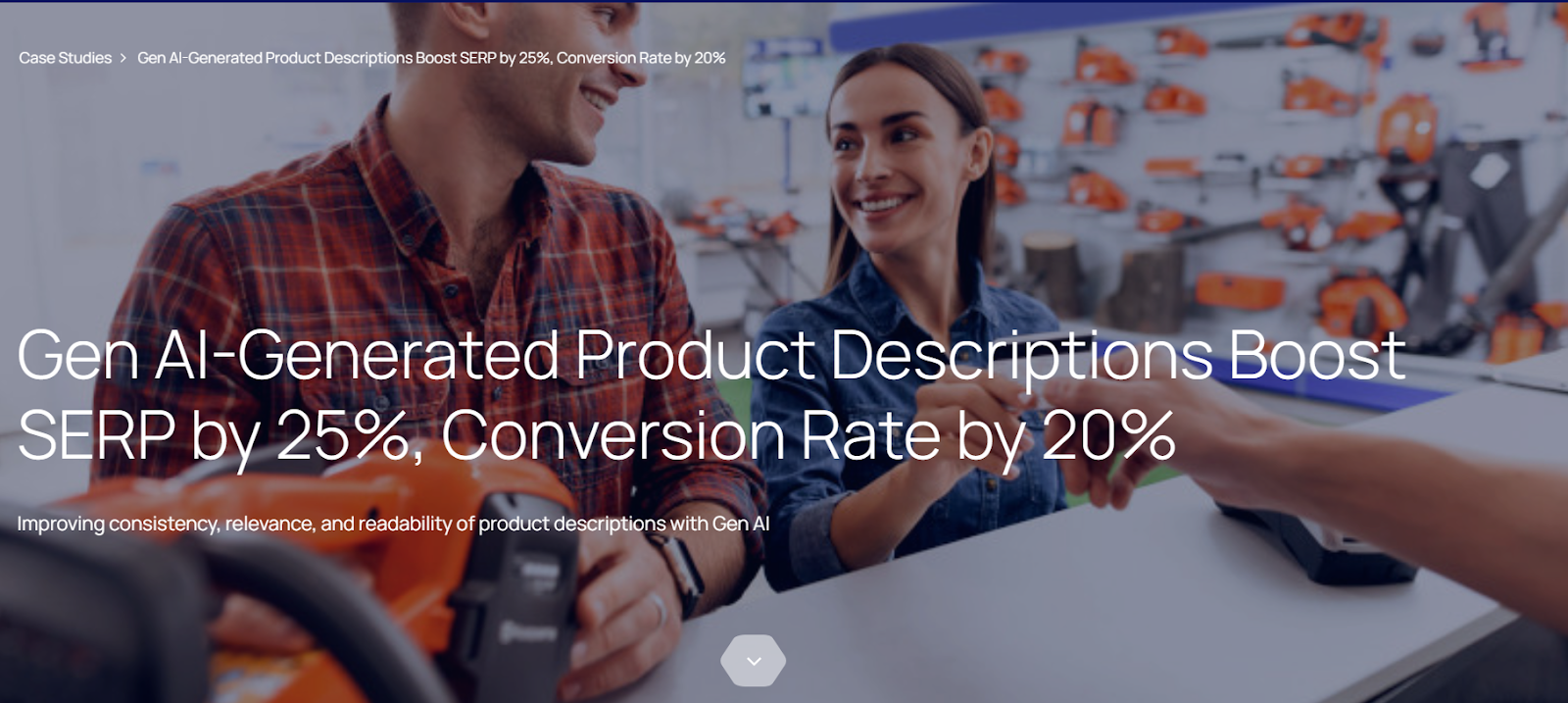
They worked with a leading retailer to help them transform their product descriptions.
The software helped them automate and enhance their product content to improve operational efficiency and increase customer engagement.
Results: Their client saw a 20% increase in conversion rate and a 25% improvement in organic rankings on Google.
#2: Walmart’s Gen AI Smart Search
Walmart has incorporated an AI-powered smart search on their website to help its customers find the products they are looking for quickly.

Customers can now type in a more complex search query, such as ‘’help me plan a football watch party’’, and the smart search will recommend all products that relate to that prompt.
Instead of customers having to decide for themselves how they want to plan the football watch party, the smart site search helps them find products they wouldn’t even think about buying.
My take: Large retailers like Walmart have been using this smart search functionality to promote products that are on sale, or products that they want to promote in certain categories in general.
#3: Amazon’s AI-Powered Shopping Assistant
Amazon has been supporting its customers by launching an AI shopping assistant in early 2024, enhancing its integration of generative AI to summarize customer reviews.
The tool helps consumers ask specific questions about products directly on the app, providing AI-generated answers based on product details and reviews.
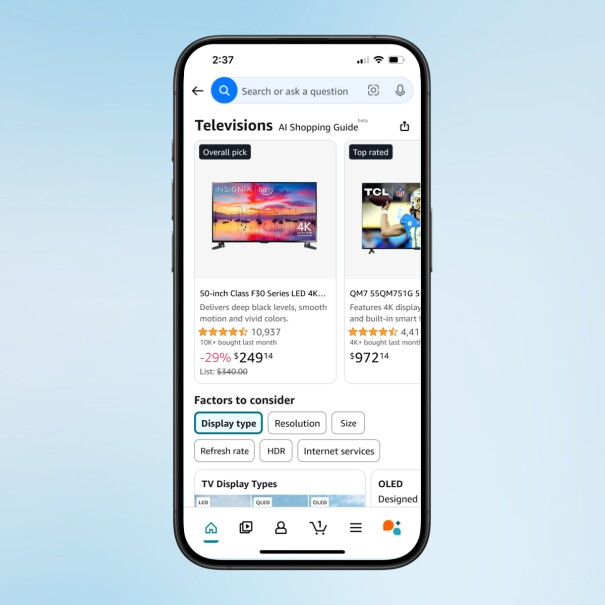
For example, customers can receive personalized recommendations on what factors to consider and can ask a chatbot what products have the best reviews.
As the element is missing ‘’add to cart’’, that further shows Amazon’s pursuit to improving customer experience, instead of using it solely as a conversion rate optimization tool.
My take: Helping your customers is what increases conversion rates, without a clear call to action from the support.
Next Steps: Adopt AI Alongside Your E-Commerce Team on Team-GPT
Adopt AI on any advanced AI model alongside your time on Team-GPT.
Our Enterprise AI software lets your team build a custom version of ChatGPT that you can use for your online store.
You can access:
- Real-time collaboration tools.
- A pre-made prompt library to create efficient marketing workflows.
- Detailed usage analytics to track worker engagement.
- Enterprise-grade security ensures data privacy and the ability to host the platform on your turf.
Sign up for a demo of the platform today!


